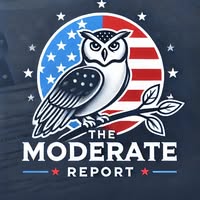Epstein Survivor Says Republican Members of Congress Bailed on Meeting With Victims After They ‘Said They Would Show Up’
Lisa Phillips, the former model and survivor of serial sex offender Jeffrey Epstein, claimed on Tuesday that several Republican members of Congress bailed on a meeting with her and other victims after saying they would show up. “Never in our history has a presidential administration worked so hard to cover up an international child sex trafficking ring,” said Michael Popok during an interview with Phillips on MeidasTouch. “I mean, this is one of one. This is Donald Trump, because of his conflicts of interest and the nature of his relationship with two child sex traffickers, one convicted and one dead, and his willingness to do anything.” Popok continued: He’s willing to sacrifice it all in order to cover up for two child sex traffickers rather than siding with the victims. He meets with so many people in the White House, from reporters to oligarchs to bootlickers and sycophants. Has he ever invited you or any other survivors to meet with him in the White House? “No,” replied Phillips. Popok pressed, “You barely got an audience with some of the Republican female members of Congress, right?” “Yeah, a few of them said they would show up for us, but in the end, they ended up not,” answered Phillips. Last year, a small bipartisan group of lawmakers met with Phillips and other Epstein survivors, including then-Rep. Marjorie Taylor Greene (R-GA), Rep. Nancy Mace (R-SC), Rep. Thomas Massie (R-KY), and Speaker Mike Johnson (R-LA). While Greene had urged Trump to attend the meeting and speak with the victims of his former friend, the president ultimately opted against doing so. Since then, President Donald Trump has repeatedly attacked Greene and Massie – with Greene resigning from Congress over the attacks and Trump backing a primary challenger against Massie in an attempt to unseat him. The post Epstein Survivor Says Republican Members of Congress Bailed on Meeting With Victims After They ‘Said They Would Show Up’ first appeared on Mediaite.

